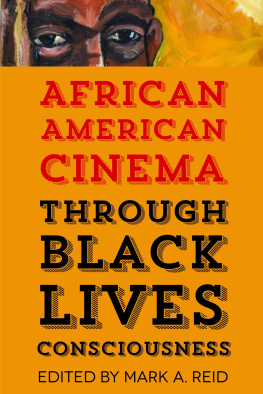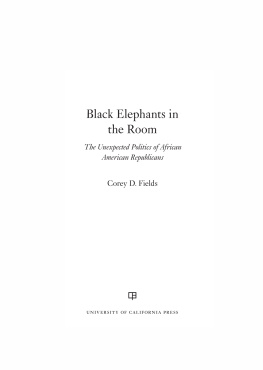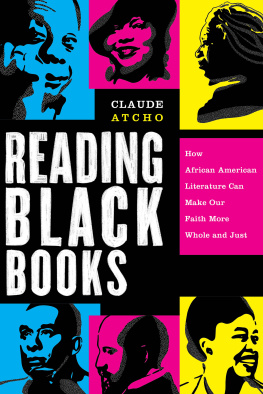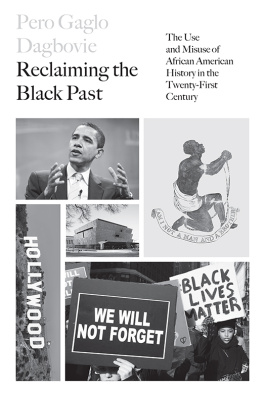Pleasure
in the NEWS
THE NEW BLACK STUDIES SERIES
Edited by Darlene Clark Hine and Dwight A. McBride
A list of books in the series appears at the end of this book.
Pleasure
in the NEWS
AFRICAN AMERICAN
READERSHIP AND SEXUALITY
IN THE BLACK PRESS
KIM GALLON
2020 by the Board of Trustees
of the University of Illinois
All rights reserved
Library of Congress Cataloging-in-Publication Data
Names: Gallon, Kim T., author.
Title: Pleasure in the news: African American readership and sexuality in the Black press / Kim Gallon.
Description: Urbana : University of Illinois Press, [2020] | Series: The New Black studies series | Includes bibliographical references and index. |
Identifiers: lccn 2019054548 (print) | LCCN 2019054549 (ebook) | ISBN 9780252043222 (cloth) | ISBN 9780252085093 (paperback) | ISBN 9780252052101 (ebook)
Subjects: LCSH : African American newspapersHistory20th century. | SexPress coverageUnited StatesHistory20th century. | Sex rolePress coverageUnited StatesHistory20th century. | Press and politicsUnited StatesHistory20th century.
Classification: LCC PN 4882.5 .G35 2020 (print) | LCC PN 4882.5 (ebook) | DDC 071.308996073dc23
LC record available at https://lccn.loc.gov/2019054548
LC ebook record available at https://lccn.loc.gov/2019054549
For
Ciara, Kai, Khephren, and Emory
CONTENTS
ACKNOWLEDGMENTS
To publicly acknowledge or express gratitude in a first book is a joyous occasion as it signifies a successful end of many years of work. Acknowledgments also reveal the significance of relationships that were instrumental to the research and writing process. In this regard, I would like to thank a number of people who played a key role in the publication of this book.
First, I would like to thank Dawn Durante and the University of Illinois Press for their assistance in helping me bring this book to fruition. I am honored that my book sits alongside incredible scholarship in the New Black Studies Series.
I would also like to thank Margaret Puskar-Pasewicz for her commitment and time spent in getting me to a place where I found confidence in myself and the project. Your coaching and support from the beginning to the end of the process played an integral part in the development of the book.
Thank you to Kathy Peiss and Barbara Savage. You were unfailing in your belief in me. I owe you a tremendous debt for your embodiment of what I could achieve with hard work and commitment.
I also owe a great deal of gratitude to Jane Rhodes who has been and continues to be one of my biggest supporters. Your advice and counsel has helped me time and again to avoid making costly professional mistakes. When I look at you, I see someone I hope to become in the years to come.
Thank you to Susan Curtis. You were an incredible cheerleader as I struggled to negotiate the various minefields in the publication process. I am so grateful for your careful examination of the manuscript and assistance in preparing it for an external review.
Thank you to Rebecca Klein-Pejov and Fritz Davis. Both of you provided helpful advice and personal stories about similar challenges in writing your own books. Your words bolstered me and enabled me to depersonalize the process and see the bigger picture.
A particularly special thank you to Marlo David and Jennifer Marshall. You offered me support and care though some of the more difficult times in the publication process. Both of you offered me a shoulder to cry on as well as strategic ideas on how to move forward when I believed I had hit a wall. I am eternally grateful that you allowed me to be vulnerable without fear of judgment.
A big thank you goes to Cornelius Bynum who is a constant friend and mentor. You talked me down from the metaphorical ledge that I attempted to jump off numerous times while writing this book. Since I have known you, you have always been there for me. I deeply, deeply appreciate your friendship and support.
Thank you to Denise Perry. You have been a true friend to me since high school. You always ask about my work no matter what you might be going through. I love you for always accepting me unconditionally despite my weird ways.
A similar thank you to Terza Lima-Neves. You have taught me how to have grace under fire and accept people for who they are. I will always fondly remember our time together in you know where.
To my parents, Icilda Johnson and Jerome Gallon thank you for your love and the gift of intellectual curiosity and critical thought that inspires me to study and write about black people. Daddy, growing up watching you read several daily newspapers from cover to cover demonstrated the value of knowledge. Mommy, your love of reading and the regular trips to the library with Desiree, Ava, and April taught me the beauty and power of words. I am deeply indebted to the foundation and sense of the world you both imparted to me.
Finally, to my beautiful masterpieces, Ciara, Kai, Khephren, and Emory, thank you for your patience and unremitting love.
A NOTE ON TERMINOLOGY
The language in the book is neutral when it is not clear how individuals would have defined their gender and sexual identities. Gender-nonconforming expression is used to reference biological men or women dressing in clothing that was not traditionally worn by members of their sex. The terms pansy or fairy are used only in quotations and are indicative of language that Black Press reporters used to discuss homosexual life and gender-nonconforming expression. The terms homosexual and lesbian are used only when referring to same-sex desire or same-sex sexual encounters between men and women, respectively. The term female impersonator is used to refer to an individual who was born a man and chose to dress in womens clothing for pleasure, to work in the entertainment and sex industry, or for other undisclosed reasons. By the same token, male impersonator in this study refers to women who dress in mens apparel for pleasure, work in the entertainment industry, or other undisclosed reasons. This language is more historically accurate than the terms drag queen or drag king as the communities this book examines used the words female impersonator and male impersonator in an expansive fashion.
INTRODUCTION
On April 18, 1925, Chandler Owen, writer and founder of the literary journal, The Messenger , published a front-page article, Why the Press Prints Crime and Scandal News, in the Chicago Defender . Other concerned African American readers warned reporters that news of this sort besmirched a race already under regular attack by whites for perceived criminal and hypersexual behavior.
Owen responded to this criticism by arguing that he and other journalists believed that readers demanded sensational coverage. Only a negligible number of people crave news of the good, reported Owen. Most readers, according to Owen, desired coverage that revealed how Mary Smith was caught in a compromising position with a man and John Smith has divorced her over news that a new African American national bank was flush with business. about sex and crime over hard news topics such as protests against racism and racially uplifting stories.








